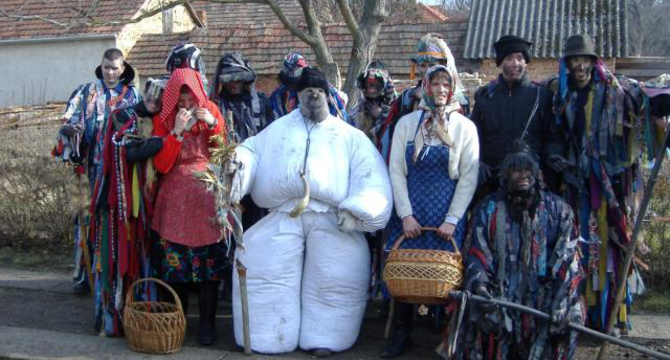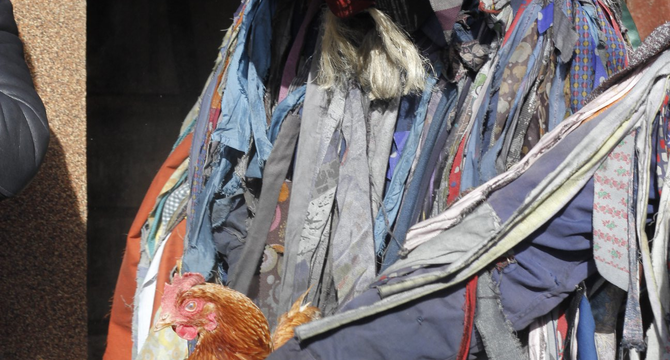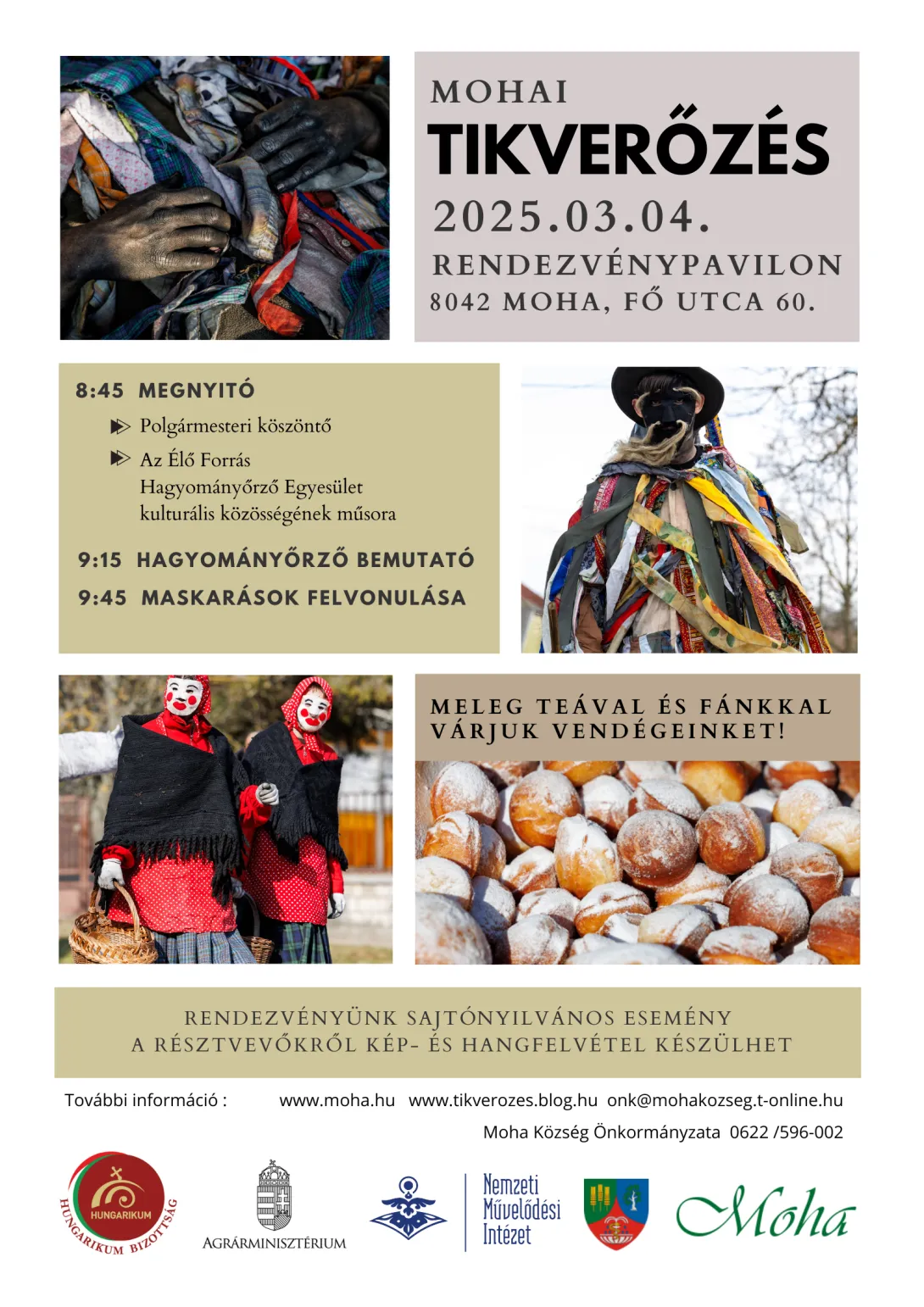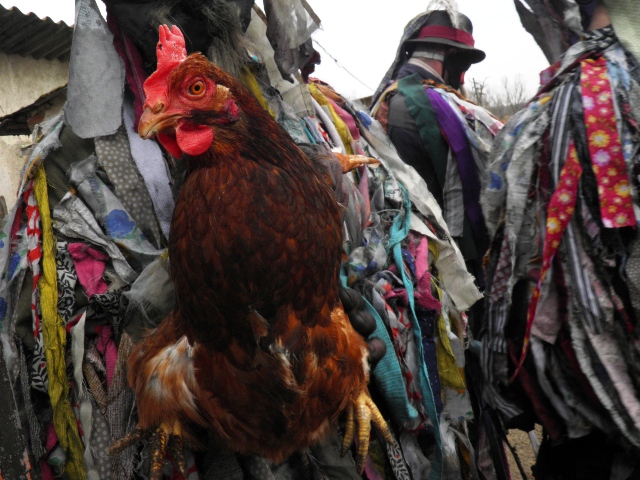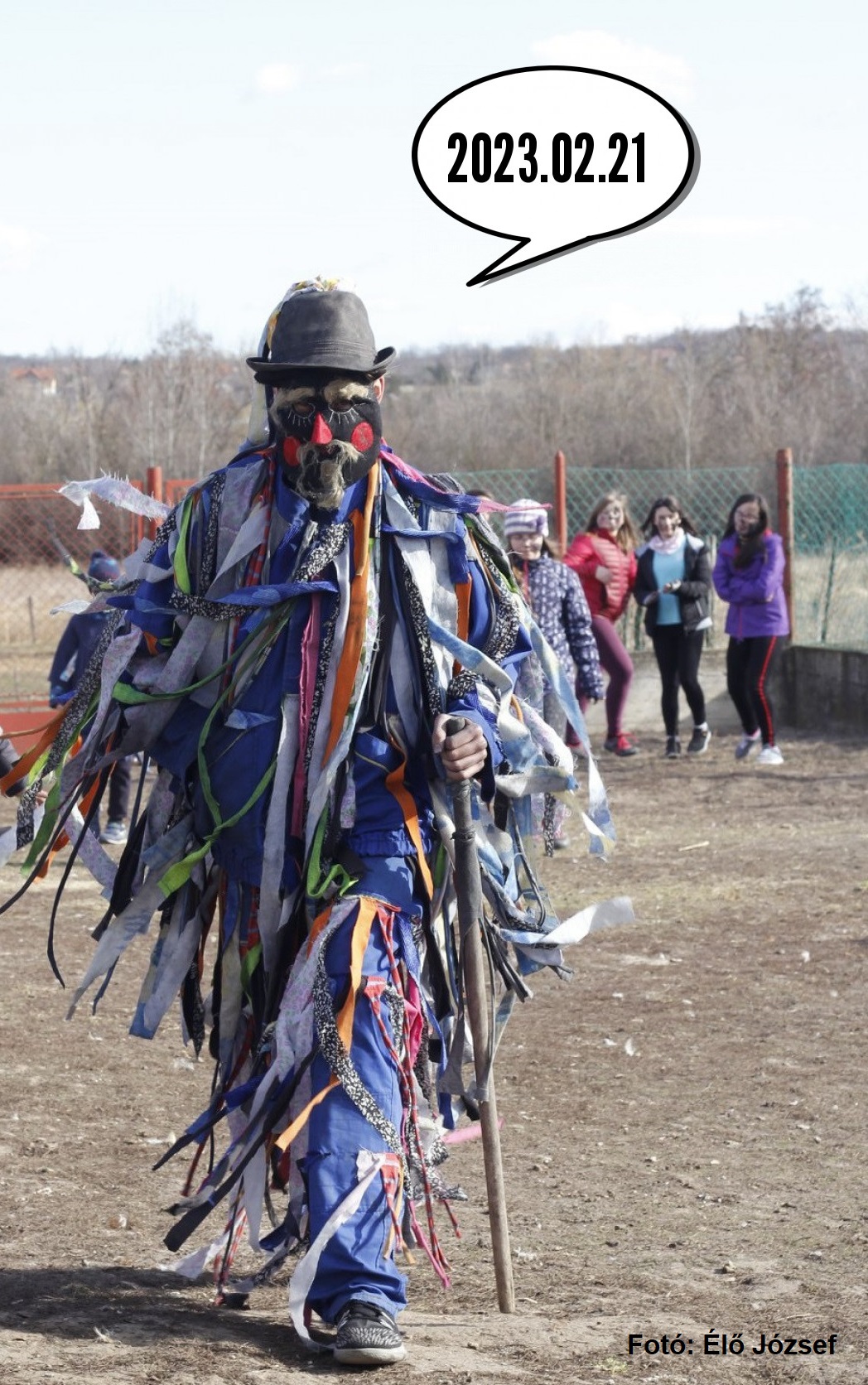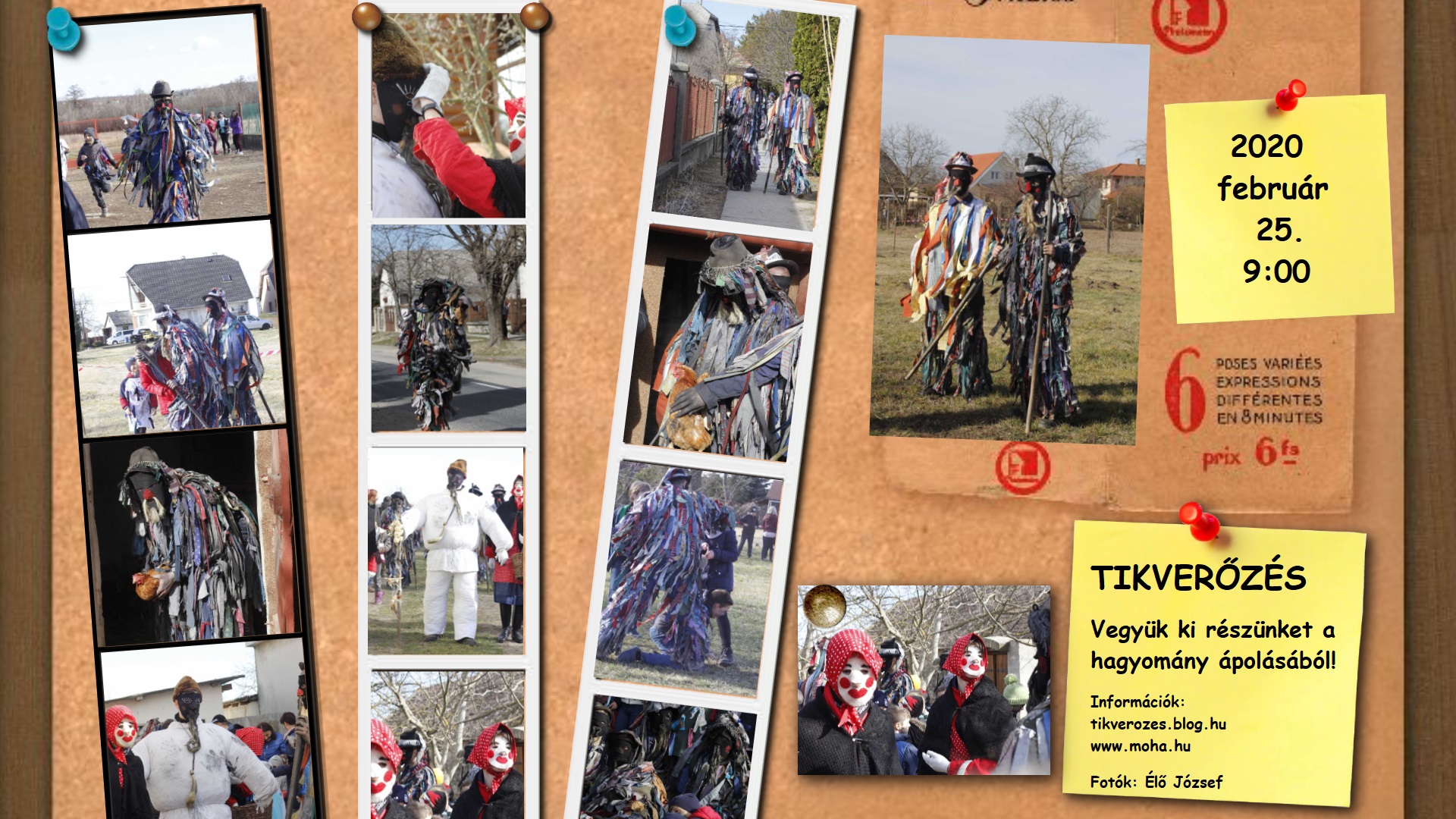Farsangi népszokás Mohán
Tikverőzés
Tikverőzés - a short description
Tikverőzés is a fairly unknown carnival folk tradition.
The tradition of tikverőzés is organized each year on Shrove Tuesday. Its location is the little village of Moha, in Fejér County, Hungary.
The young men - usually living in the village of Moha or descendants of local villagers - gather together, don their quite unique-looking traditional masquerades to scare the winter away.
The group of tikverőzők (plural form of tikverőző) proceeds from house to house, gathering in the backyard of each house where traditionally the poultry is kept. They symbolically hit the bottoms of the chickens with their sticks to hasten their egg-laying. Hence the Hungarian name of the tradition which translates as “chicken-hitting”. It is important to mention that no animal cruelty is happening during this ritual. With this symbolic act they are enhancing good health, fertility and prosperity for the hosting families. For their magic they are rewarded from the local villagers with donations of food and eggs.
During the day the tikverőzők smear the faces of everyone they meet with ash. The soot brings good health and fertility, they believe.
The tradition is known to be more than 150 years old, was practiced in other villages of the region as well but for the last century it has only been kept alive in this tiny village. The symbolic rituals and secret pranks of the tradition are passed on from one generation to the next, rules never written down. Ardent volunteers are working on the preservation of the tradition, supported by the local government.
The tikverőzők are happy to share their precious tradition with visitors.
The video under the following link is highly recommended and has English subtitle:
https://www.youtube.com/watch?v=v3ab1ja-Gf8
The tikverőzés is acknowledged as an intangible cultural heritage and is listed on the National Inventory of UNESCO's Cultural Heritage of Humanity since 2011.
More information under the following link:
https://szellemikulturalisorokseg.hu/index0_en.php?name=en_0_tikverozes_mohan
Tikverőzés - 2023.02.21
FEOL cikk a kerítéskiállításról
Tíz évenként érkező generációk szerepeltek a mohai tablókon
" Kerítéskiállítást szervezett a Terepjárók Diáksport és Kulturális Egyesület saját alkotóházának utcafrontján. A kifüggesztett tablókon a tikverőzés eseményeinek főbb állomásait tették ki, nagyjából tíz évenkénti tagolásban."
A cikk teljes szövege elérhető a linken.
Cikk a FEOL oldalán: Újra megelevenedik a mohai varázslat
Újra megelevenedik a mohai varázslat
„Ez az ősi népi játék a farsangi alakoskodó játékok egyike, néhány évtizeddel ezelőtt még több községben élt ez a hagyomány – napjainkban már csupán itt maradt meg egyedül az országban” – írták a mohai tikverőzésről 1964-ben."
A cikk teljes szövege elérhető a linken.
Tikverőzés 2022
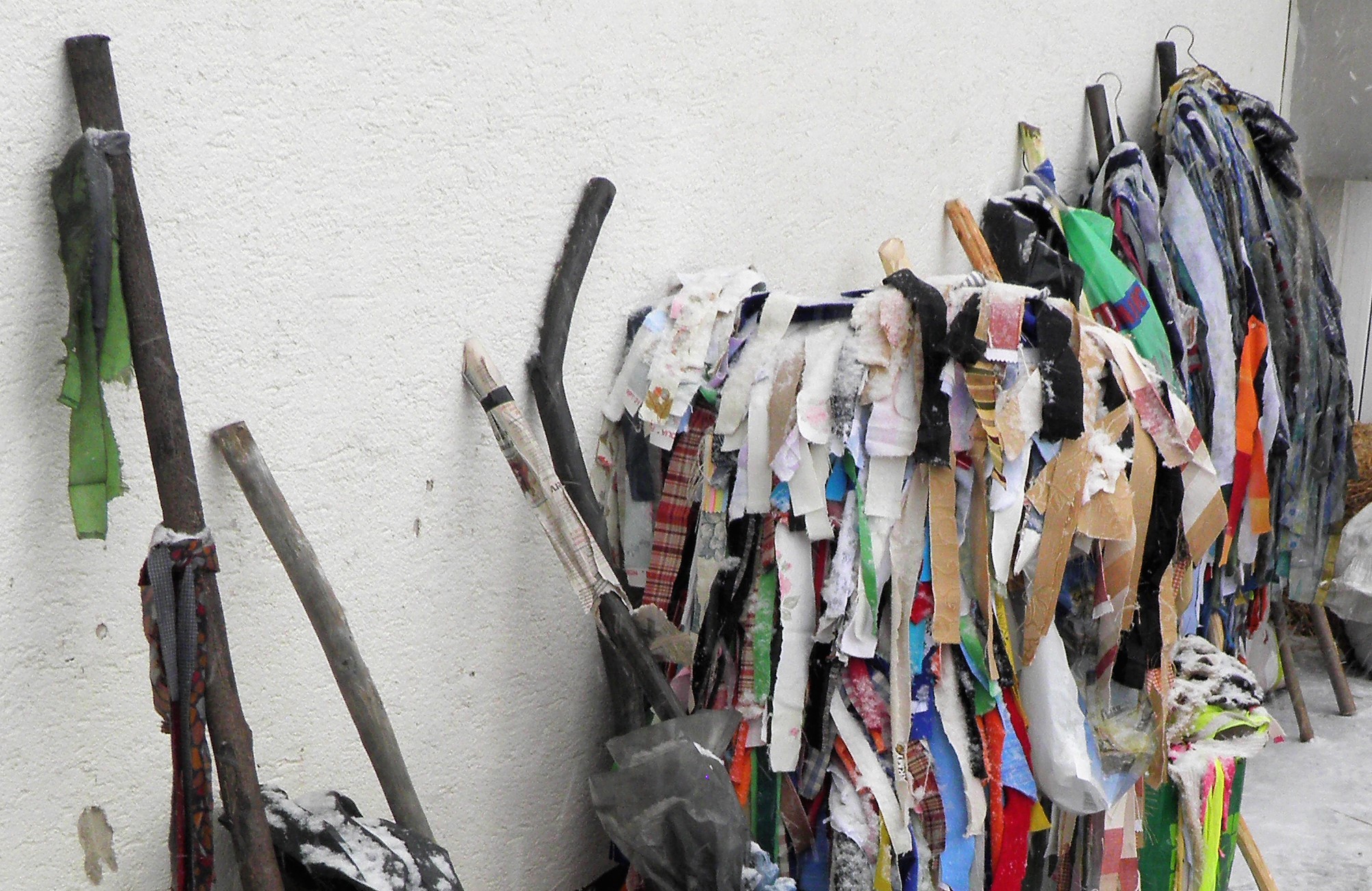
A tavalyi évben 2022-be vetettük reményeinket. Most megkezdődött a tervezés-szervezés, hogy idén, egészen pontosan 2022. március 1-én lehessen újra tikverőzés. A falu lelkesedése és hagyományszeretete töretlen, ám a járványhelyzetre való tekintettel a szervezők fenntartják a jogot, hogy a népszokás látogathatóságán, az események lebonyolításának menetén és szabályain bármikor változtathassanak, az éppen aktuális helyzetet alaposan mérlegelve, és hogy szükség esetén lemondhassák a programot. Az örökségünk fontos, de az egészség a legfontosabb. Megértésüket köszönjük.
További információk hamarosan...
Tikverőzés 2021 - ELMARAD!
Ahogyan a www.moha.hu oldalon olvasható, a szervezőknek sajnos az idei tikverőzés kihagyása mellett kellett dönteniük. A kiadott közlemény így számol be a részletekről:
Kedves Tikverőzők!
Kedves Érdeklődők!Szomorúan közöljük,hogy a mohácsi busójárás és a novaji remélés után a tikverőzés sem kerül megrendezésre az idei évben. Hiába a sok munka, van amikor a rendezvény törlése szükségessé válik. A hazánkat is érintő koronavírus fenyegetettség miatt át kellett gondolnunk a télűző rendezvényünk megtartását. Reménykedtünk a pozitív változásban, de számunkra mindenki egészsége fontosabb. Bizakodva tekintünk a 2022-es évre, amikor is talán sikeresen megtarthatjuk a tikverőzést.
Megértésüket köszönjük.
Fehérvár TV tudósítása a mai napunkról
Meghívó plakátja 2020
Tikverőzés az M2 Matricák című műsorban
Az M2 Matricák című műsora a héten a tikverőzéssel foglalkozott, az anyagot múlt kedden (2019.03.05) vették fel autentikus környezetben.
https://www.mediaklikk.hu/video/m2-matricak-igaz-vagy-hamis-tikverozes/
